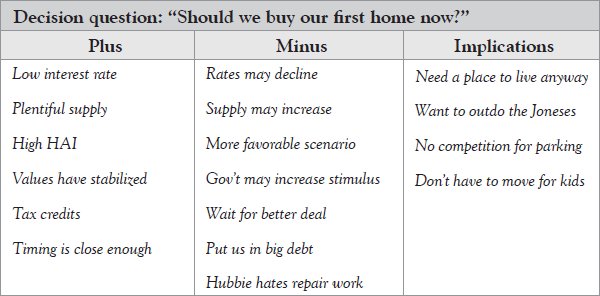Pizzas are never cut perfectly. And, quite naturally, most of us want to scam the largest slice for ourselves. We seek to maximize the gain (most cheese and pepperoni) and minimize surprises (who ordered the anchovies?).
Pepperoni hedonists.
According to the philosophy of hedonism, it’s natural that most of our choices are driven primarily by our own self-interest. That doesn’t mean making the one “right choice” in some larger ethical, social, or human sense. Rather, it simply means that we are motivated to better our self with the least effort and resources possible. Nothing wrong there.
To the rational decider, happiness is opening the box and searching for the biggest slice. She gathers information, objectively weighs different options, and analytically determines which slice will bring her the maximum satisfaction. In doing so, however, she risks being aced out by the hungry and swift. While she’s busy surveying the terrain, her friend snatches the good stuff!
Rational minds prevail.
 When it comes to pizza, we rely on gut feel and make up our mind on the spot. Psychologists call this process intuitive decision making. It is fast, convenient, and less stressful (see: It’s our choices, Harry). But blindly following the adage, “You snooze, you lose” isn’t always wise. Depending on circumstances, rational thinking can be more effective in helping us make smart choices.
When it comes to pizza, we rely on gut feel and make up our mind on the spot. Psychologists call this process intuitive decision making. It is fast, convenient, and less stressful (see: It’s our choices, Harry). But blindly following the adage, “You snooze, you lose” isn’t always wise. Depending on circumstances, rational thinking can be more effective in helping us make smart choices.
Rational decision making consumes time and effort, so we tend to use it only when we are faced with an important or complicated decision. One simple method is a variation of the “Pros & Cons” list. It is great when you need to assess a single alternative (“yes-no”) outcome. You may, for example, be deciding whether to get a pet, work at a part-time job while in school, or move in with your friend. Here’s how it works:
- Define as specifically as possible the decision to be made. Ask yourself “Do I really need to make a decision?” and “When does the decision need to be made?”
- On a piece of paper, write down the proposed decision as a question. Frame it so that a simple “yes-no” (“go-no go”) is the answer.
- Divide the paper into three columns. Label the headings “Plus,” “Minus,” and “Implications.”
- In the “Plus” column, write down all of the positive points you can think of should you take the action.
- In the “Minus” column, write down all of the negative / less desirable outcomes. Sometimes the same points can be both an advantage and a disadvantage.
- Under “Implications,” write down any implications, whether positive or negative. This helps you think about the longer-term consequences.
- For outcomes that are hard to predict, write them down separately. Talk with tribal elders to get their impressions. After clarifying, add them to your list.
- If you are diligent in completing the table, it should become clearer whether the decision you are considering is advisable.
Some dismiss the notion that important decisions in our lives can be made analytically. The rational process is valuable, however, because it provides a powerful framework to review your assumptions, clarify your thinking, and act accordingly. Let’s look at an example.
Here’s how it works.
Decision question: Drake asks, “Should we buy our first home in today’s real estate market?”
Pros:
- Historically low interest rates.
- Plentiful supply of homes from which to choose and most sellers are negotiable.
- Housing affordability index (relative indicator of affordability) is higher, creating a wider margin of disposable income above mortgage payments.
- Overall, median home values are stable in the local market.
- Federal tax credits for qualified first time home buyers.
- Virtually impossible to pick the top or the bottom of any market . . . close is good enough.
Cons:
- Loans rates might decline even further.
- Supply may continue to increase and sellers become even more negotiable.
- Disposable income, home prices, and interest rates may collectively create a more favorable purchasing scenario.
- Government stimulus for home ownership may grow larger.
- Best to wait and ensure we get the best possible deal.
- This will put us in hock up to our eyeballs.
- Hubbie hates home repairs.
Implications:
- We need a place to live and put our junk anyway.
- Pride of ownership will ensure that we outdo the Joneses.
- No more competing with our dorky neighbors for a parking space.
- Won’t have to move again when rug rats come on scene.

For Drake, reflecting on the “big picture” led him to decide that the time was right to purchase a home for his family. Good decision-making is a skill that can be learned and improved—but when it comes to pizza (and auto racing), you’re right, mate. The fastest gets the mostest!
No sensible decision can be made without taking into account not only the world as it is, but also the world as it will be.
~ Isaac Asimov, science fiction writer
Learn more about this, and other interesting topics, in the Young Person’s Guide to Wisdom, Power, and Life Success.
Image credit: “Three girlfriends eating pizza at home” by vladteodor, licensed from 123rf.com (2016).





















